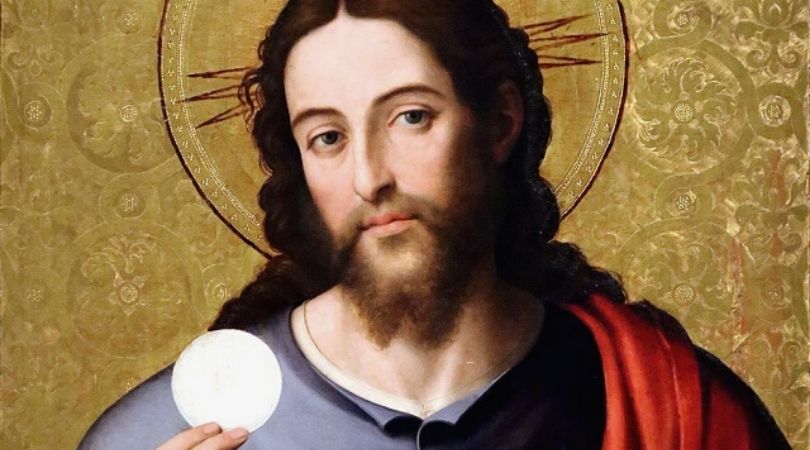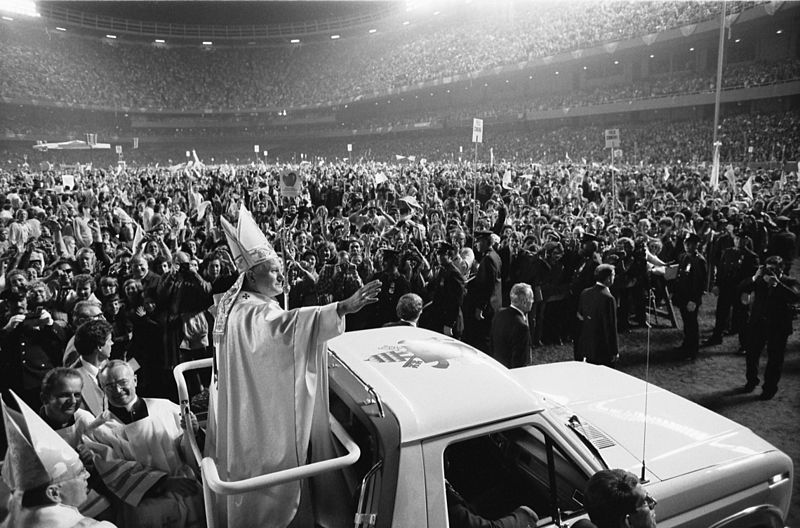GOSPEL READING: John 21:20-25
20 Peter turned and saw following them the disciple whom Jesus loved, who had lain close to his breast at the supper and had said, “Lord, who is it that is going to betray you?” 21 When Peter saw him, he said to Jesus, “Lord, what about this man?” 22 Jesus said to him, “If it is my will that he remain until I come, what is that to you? Follow me!” 23 The saying spread abroad among the brethren that this disciple was not to die; yet Jesus did not say to him that he was not to die, but, “If it is my will that he remain until I come, what is that to you?” 24 This is the disciple who is bearing witness to these things, and who has written these things; and we know that his testimony is true. 25 But there are also many other things which Jesus did; were every one of them to be written, I suppose that the world itself could not contain the books that would be written.
Meditation: Why do we often compare ourselves with others? Do we envy those who seem more fortunate than ourselves? Why did Peter question Jesus about John’s future? Jesus had predicted that Peter was to suffer and die as a martyr for his faith. What would John’s fate be? Jesus seems to indicate that John would live a long life – in fact he outlived all the other apostles.
Jesus says, “Follow me and you will have life in abundance”
While Peter and John were both called as disciples of Jesus, each was given a particular task and mission to fulfill. When Peter questions John’s role, Jesus responds, “What is that to you? Follow me!” Peter’s given task was to “shepherd the sheep of Christ,” and in the end to die as a martyr for the Lord Jesus. John’s role was preeminently to witness to the risen Lord Jesus and to give his testimony to the Gospel account of Jesus’ identity as the divine Son of God who became a man to save us from sin, Satan, and death (John 20:31). John lived to long age and wrote the Gospel as his testimony to the reality of the resurrection of Jesus Christ.
Jesus does not cease to do great works of power and love through his people today
John ends his Gospel with an astonishing remark: “Human books cannot exhaust the person and work of Jesus Christ.” His power is inexhaustible, his grace is limitless, his wisdom unfathomable, his triumphs are innumerable, and his love is unquenchable. We can never say enough of the power, majesty and glory which belongs to Jesus Christ alone. Do you witness to others the joy of the Gospel message that Jesus died for us to bring us new life, freedom, love and power to live as his disciples?
May the power of your love, Lord Christ, fiery and sweet as honey, so absorb our hearts as to withdraw them from all that is under heaven. Grant that we may be ready to die for love of your love, as you died for love of our love.” (Prayer of Francis of Assisi, 1182-1226)
Psalm 11:4-7
4 The LORD is in his holy temple, the LORD’s throne is in heaven; his eyes behold, his eyelids test, the children of men.
5 The LORD tests the righteous and the wicked, and his soul hates him that loves violence.
6 On the wicked he will rain coals of fire and brimstone; a scorching wind shall
be the portion of their cup.
7 For the LORD is righteous, he loves righteous deeds; the upright shall behold his face.
Daily Quote from the Early Church Fathers: Peter follows, John remains, by Augustine of Hippo, 354-430 A.D.
“The Lord either said what he said to Peter about his martyrdom, or he said it about the gospel of John. As regards the martyrdom and this ‘Follow me,’ [he means] suffer for me, suffer what I did. Because Christ was crucified, Peter too was crucified… while John experienced none of this. That is what is meant by, ‘It is thus that I wish him to remain.’ Let him fall asleep without wounds, without torment, and wait for me. You, Peter, ‘Follow me,’ suffer what I did. That’s one way these words can be explained…
“As regards the Gospel of John, though, this is what I think is meant: that Peter wrote about the Lord, others too wrote; but their writing was more concerned with the Lord’s humanity… But while there is something about the divinity of Christ in Peter’s letters, in John’s gospel it is very much to the fore… He soared above the clouds and soared above the stars, soared above the angels, soared above every creature and arrived at the Word through which all things were made.” (excerpt from Sermon 253.5.5)







